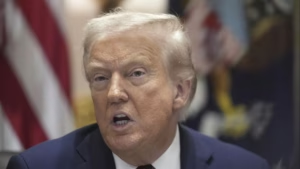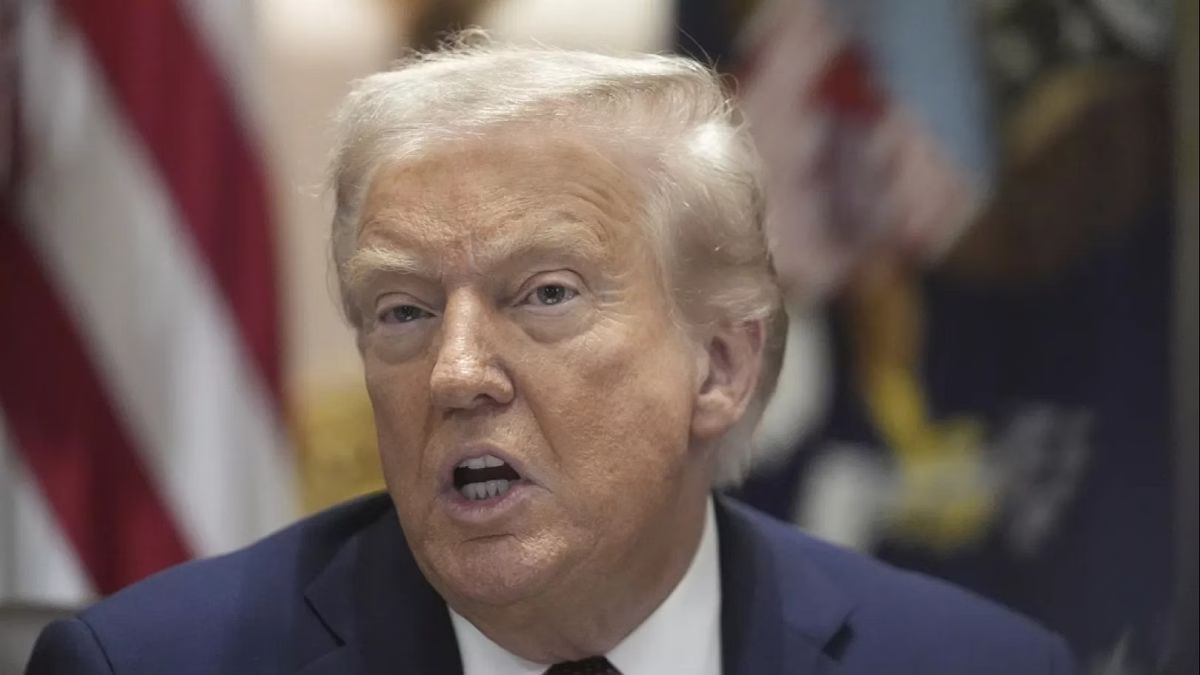<
div style=”–widget_related_list_trans: ‘Related’;”>

ADVERTISEMENT
A recent ruling by a US federal appeals court determined that President Donald Trump lacked the legal authority to impose widespread tariffs, arguing that he exceeded his power under an emergency powers law. However, the tariffs will remain in place until mid-October, giving the administration time to appeal to the Supreme Court.
In response to the decision, Trump expressed his intention to pursue an appeal. He stated that allowing this ruling to stand would have catastrophic consequences for the United States.
The ruling is seen as a significant setback for Trump’s trade agenda and largely supports a previous decision made by a specialized federal trade court in New York.
Trump’s tariffs and the unpredictable nature of their implementation have caused concern in global markets, strained relationships with US trading partners and allies, and raised fears of increased prices and slower economic growth.
Impact on Trump’s Trade Policy
The court’s decision focuses on the tariffs imposed by Trump on nearly all US trading partners, as well as the levies placed on China, Mexico, and Canada.
In what Trump referred to as “Liberation Day,” he implemented reciprocal tariffs of up to 50% on countries with trade deficits with the US and baseline tariffs of 10% on most other countries.
However, the reciprocal tariffs were later suspended for 90 days, allowing countries to negotiate trade agreements with the US and reduce barriers to American exports. Some countries, such as the United Kingdom, Japan, and the European Union, agreed to such deals with Trump to avoid higher tariffs.
Countries that did not agree or incurred Trump’s ire faced harsher penalties, with Laos facing a 40% tariff and Algeria a 30% levy. Trump also maintained the baseline tariffs.
Trump claimed the power to act without congressional approval and justified the taxes under the International Emergency Economic Powers Act by declaring the US’ sustained trade deficits as a national emergency.
In February, he invoked this law to impose tariffs on Canada, Mexico, and China, citing the illicit flow of immigrants and drugs across the US border as a national emergency.
The Constitution grants Congress the authority to set taxes, including tariffs. However, lawmakers have gradually allowed presidents to assume more control over tariffs, with Trump being the most prolific in this regard.
On Friday, the federal appeals court stated in its 7-4 ruling that it is unlikely Congress intended to give the President unlimited authority to impose tariffs.
Some judges dissented, claiming that the 1977 law
Source: https://www.euronews.com/2025/08/30/us-appeals-court-rules-trumps-global-tariffs-are-unconstitutional






